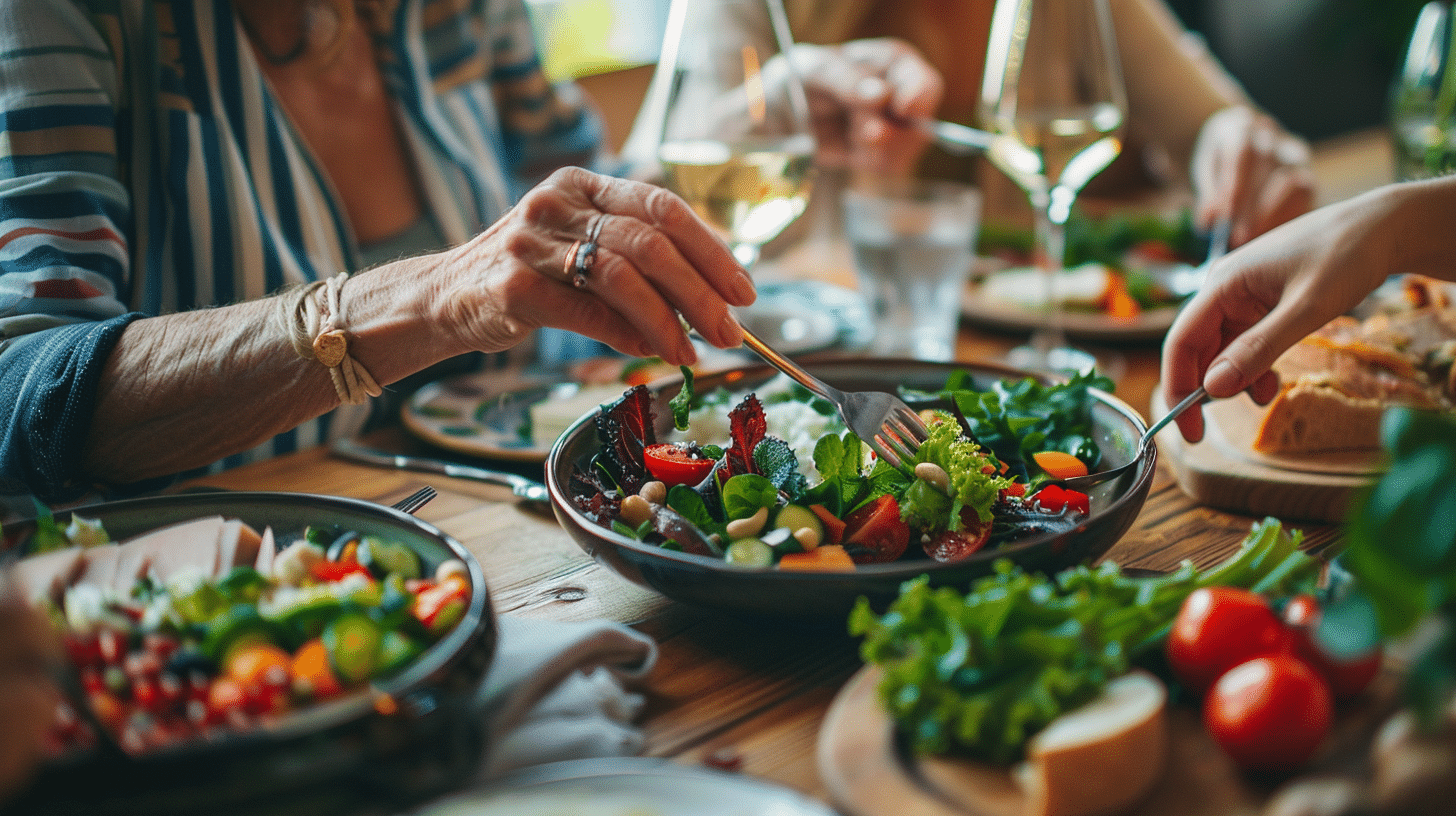
Cultural and Dietary Diversity
Exploring the richness of cultural traditions in shaping dietary preferences and fostering inclusivity.
Cultural and dietary diversity is pivotal in creating an inclusive society and nurturing healthy communities. In the past year, various events have shed light on the alarming lack of diversity and inequality in multiple settings, including dietetics. However, amidst these challenges, efforts are being made to promote cultural and dietary diversity.
Recently, a group of dedicated dietitians organized an online event to address the health profiles of different ethnic minority groups, provide valuable, healthy eating tips, and discuss the importance of tailoring specific diets to individual needs. By recognizing the unique cultural diets of various communities, they sought to foster inclusivity and ensure everyone has access to the necessary resources for a nourishing lifestyle.
This event opened doors to celebrating culinary traditions worldwide, emphasizing that cultural and dietary diversity present numerous benefits and advantages. These include the preservation of ancestral knowledge, the promotion of physical and mental well-being, and the ability to create vibrant and flavorful meals.
The event aimed to empower individuals to make informed food choices aligned with their cultural preferences by providing healthy eating tips. These tips included adding fruits, vegetables, whole grains, and lean proteins. By tailoring specific diets and considering cultural practices and individual requirements, the event drew attention to the importance of customization for optimal health outcomes.

Cultural influences on dietary choices
Cultural influences play a significant role in shaping individuals’ dietary choices and preferences. People’s cultural backgrounds impact their food preferences and the types of foods they include in their diet. Cultural factors can be seen in the overall choices of what is consumed, how food is prepared, and the rituals and traditions of meals.
For example, certain cultures strongly prefer vegetarian or vegan diets due to religious or ethical beliefs. In Indian culture, many people follow a plant-based diet due to their spiritual practices and beliefs in non-violence. Similarly, cultural practices influence the consumption of certain types of meat or seafood. In Japanese cuisine, sushi and sashimi are popular, reflecting the reliance on seafood fishing and the island nation’s historical cultural practices.
Moreover, cultural factors also impact the cooking methods and preparation techniques in different cultures. For instance, Indian cuisine commonly uses a variety of spices and seasonings, resulting in rich and flavorful dishes. In contrast, Western cultures often emphasize simplicity and rely on techniques like grilling or roasting.

Traditions
Traditions play a significant role in shaping cultural food practices and are integral to diverse culinary heritages worldwide. These traditions are not only about passing down recipes but also about communal values, gathering, and celebrating cultural identity. They contribute to preserving cultural heritage and have several benefits and advantages.
Traditional Mediterranean dietary habits promote a healthy lifestyle through fresh herbs and spices, seasonal and locally sourced ingredients, and regular physical activity. Similarly, Asian cuisine, known for its balance and variety, emphasizes the consumption of rice, noodles, vegetables, and modest portions of meat or fish. This cultural approach encourages mindful eating, underscores the significance of tea, and incorporates fermented foods like kimchi or miso.
Latin American cuisine embraces diverse traditions from countries like Mexico, Peru, and Brazil, emphasizing the consumption of corn, beans, legumes, lean proteins, fruits, and vegetables. This cultural model promotes the nutritional value of traditional ingredients and preparation methods, such as corn-based tortillas and native spices like chili peppers. Vegetarian and vegan diets, prevalent in many cultures worldwide, focus on plant-based foods, legumes, nuts, and seeds, providing adequate protein, vitamins, and minerals.
Lastly, the African Heritage Pyramid emphasizes consuming whole grains, fruits, vegetables, lean proteins, and healthy oils. African food practices prioritize traditional ingredients like yams, millets, plantain, and leafy greens, which are rich in nutrients and fiber.

Incorporating Cultural Foods
Incorporating cultural foods into daily meals is a beautiful way to embrace the diverse cultural models for healthy eating and create a more nourishing diet. There are various ways to draw inspiration from the Mediterranean, Asian, Latin American, Vegetarian/Vegan, and African Heritage Pyramids.
One option is to incorporate the Mediterranean diet into daily meals. It includes consuming plenty of fruits, vegetables, whole grains, legumes, and olive oil while limiting red meat and processed foods. Eating Greek salads, hummus, and whole-grain couscous can add a Mediterranean touch.
Asian cuisine offers many flavors for dishes like stir-fried vegetables, tofu, and brown rice. Herbs and spices such as ginger, garlic, and turmeric add depth and health benefits to the meals.
Latin American cuisine showcases the richness of flavors through fresh salsas, black beans, and corn tortillas. Adding these elements to meals can provide a burst of flavor and nutrients.
Cultural foods can provide many options for those following a vegetarian or vegan diet. Plant-based proteins such as legumes, tofu, tempeh, and quinoa can create delicious and nutritious meals.
Lastly, exploring the African Heritage Pyramid can introduce dishes like jollof rice, plantains, and lentil stews to daily meals. These dishes highlight the use of whole grains, legumes, and vegetables, offering a unique and nourishing dining experience.
Embracing cultural food traditions is essential for a more diverse and nourishing diet. Individuals can benefit from various nutrients, flavors, and textures by incorporating cultural models into daily meals. It promotes cultural understanding and appreciation while expanding culinary horizons.
Embracing Cultural Diversity for Healthy Living
Cultural and dietary diversity enriches our lives and communities, fostering inclusivity and well-being. Explore how cultural traditions influence dietary choices and the benefits they offer. To embark on your journey towards healthier living tailored to your cultural preferences, contact Medical Health Solutions for personalized guidance at (303) 951-8617.
We provide weight loss services for these Lone Tree, Colorado areas:
Lone Tree, Acres Green, Belvedere, Bluffmont Estates, Carriage Club, Centennial Ridge, Club Terrace, Country Club Estates, Cypress Green, Douglas County, Fairways At Lone Tree, Heritage Estates, Heritage Hills, Lincoln Square Lofts, Masters Park, Montecito, Prominence Point, Ridgegate, Taos of Lone Tree, Terra Ridge, The Fairways, and Wildcat Ridge.
We also provide weight loss services for Edgewater, Colorado and these surrounding areas:
Edgewater, Wheat Ridge, Arvada, Westminster, Granite, Golden, Englewood, Littleton, Broomfield, Dupont, Commerce City, Morrison, and Henderson.
We also provide weight loss services for these Denver, Colorado areas:
Denver, Baker, Capitol Hill, Central Business District, Cheesman Park, Cherry Creek, City Park, City Park West, Civic Center, Congress Park, Country Club, Lincoln Park, North Capitol Hill, Speer, Union Station, Belcaro, Cory-Merrill, East Colfax, Hale, Hilltop, Indian Creek, Lowry, Montclair, Park Hill, Virginia Village, Washington Virginia Vale, Windsor, Clayton, Cole, Elyria-Swansea, Five Points, Globeville, North Park Hill, Skyland, South Park Hill, Whittier, Central Park, Gateway, Green Valley Ranch, Montbello, Northeast Park Hill, Auraria, Berkeley, Chaffee Park, Highland, Jefferson Park, Regis, Sloan Lake, Sunnyside, West Highland, College View, South Platte, Overland, Platt Park, Rosedale, University, University Hills, University Park, Washington Park, Washington Park West, Wellshire, Goldsmith, Hampden, Hampden South, Kennedy, Southmoor Park, Southwest, Bear Valley, Fort Logan, Harvey Park, Harvey Park South, Marston, West, Public housing in Sun Valley., Athmar Park, Barnum, Barnum West, Mar Lee, Ruby Hill, Sun Valley, Valverde, Villa Park, West Colfax, and Westwood.






